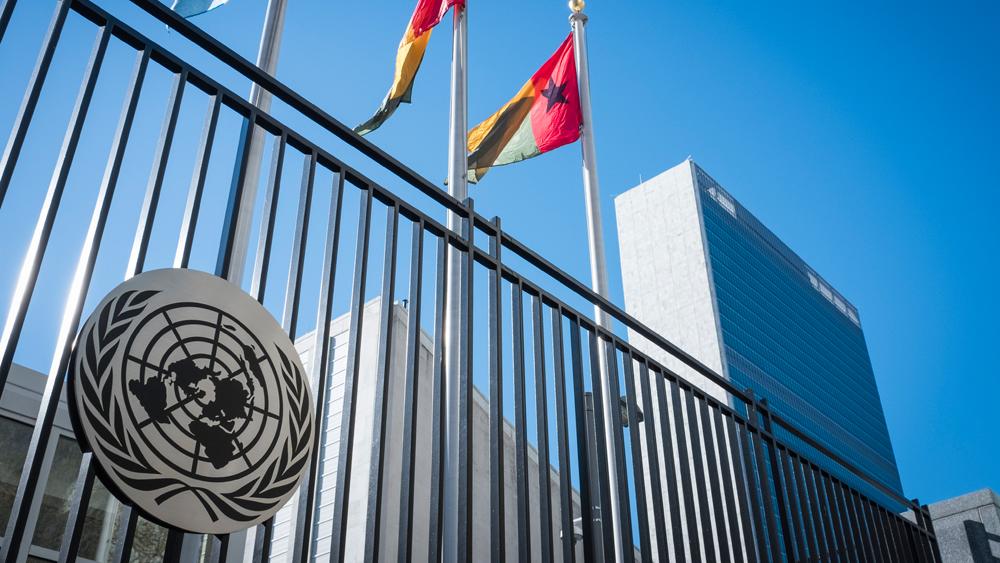Statement by Dmitry Polyanskiy, First Deputy Permanent Representative of Russia to the UN, at an open VTC of UNSC Member-States “Protection of civilians in armed conflict: Protecting civilians from conflict induced hunger”
Mr. President,
At the outset, let me thank our briefers – Mr. Qu Dongyu, Mr. David Beasley, and Mr. Jan Egeland. We are also very much honored by the intervention by H.E Miguel Vargas Maldonad – Foreign Minister of the Dominican Republic.
Todays’ meeting tackles the critical issue of conflict induced hunger. Its importance cannot be overestimated. We would like to appreciate the efforts by the Dominican Presidency to coordinate the views of the Council Members and to reflect them in the PRST. It is certainly not an easy task, and we still have some way to go in order to come to a sustainable consensus.
Having said this, we have to repeat our fundamental position that the Security Council is not the right platform to sustainably embrace and address all the socio-economic and other factors which are related to armed conflicts. We have to be honest to each other and do our best to deal with issues of peace and security here. This is the well-known distribution of labour within the UN system defined by the UN Charter that we all need to respect. Discussion or non-discussion of an issue in the Security Council should not be criteria of its importance.
We also believe that the discussion - wherever it takes place - will not be successful if we ignore the root causes and try to pretend that “symptoms” are more important than the disease itself. The food security problem of countries in armed conflict is indeed complex and multi-angled. But one of the key root causes which is often omitted by some of our colleagues is foreign interference in the internal affairs of States that provokes conflicts and risks to national food security. A vivid evidence of that we all can see every day on the examples of Iraq, Libya, Syria, Yemen. All of them have become an arena for foreign interference or even settling scores between external players. This must be stopped if we don’t want to see a further increase in humanitarian assistance requests, most of which are just to ensure the basic food requirements of the civilians. The medical consequences of a lack of balanced food, especially at a young age may irreversibly affect health of future grown-ups. The generation of children of hunger wars is growing in our plain view. And this is extremely alarming.
Yemen is the largest humanitarian catastrophe of our times, where two thirds of the population are in need of humanitarian assistance. Half of them are children.
In Syria more than 11 mln people are in need of humanitarian assistance. Having all the internal resources for independent development and ensuring the normal life of their citizens, this country is forced to rely on international, in particular food humanitarian assistance. The terms of provision of humanitarian aid are discriminatory, and often preconditioned with regime change. The role of cross-border mechanism is artificially exaggerated at the expense of existing feasible alternatives provided by Syrian government. We have heard examples of this cited during this very VTC.
Iraq and Lybia are also in very difficult situation, struggling to bring life back to normal after unlawful foreign interventions.
We do understand that climate change issue is very trendy now and there is always a temptation to insert it into every discussion. But we need to be frank with ourselves and not to exaggerate its significance for every crisis. Otherwise we risk to never find right solutions to the issues we face.
The expert discussion on the draft of PRST revealed that discrepancies on this issue will not bring us to sustainable remedies of the problems of hunger if we continue to ignore the mentioned root causes. Important things that have to be integral part of solutions, very often are left outside of the scope of our discussions.
Creating opportunities and capacities for local production, stabilizing global commodities market, trade liberalization and mitigation of the consequences of natural disasters can reanimate economies ruined by armed conflicts. And one of the most important and obvious ways to address the root causes is to remove unilateral restrictive measures and lift unilateral sanctions. This is a laborious process, but until we take this path humanitarian needs will only grow. Using medical terminology, the humanitarian assistance is only able to alleviate symptoms, but not cure the disease. We urge our colleagues to embrace these vital ideas that will help us make the text of the draft PRST acceptable for everybody.
Mr. President,
The Russian Federation pays great attention to the provision of food assistance to countries in situations of armed conflict. The humanitarian assistance addressed to such States is regularly provided by our country both through bilateral channels and through the UN World Food Program (WFP). Every year we spend more than 40 mln dollars on these purposes. WFP’s logistics delivery network allows us to be sure that assistance reaches the most vulnerable recipients. Other specialized UN agencies and platforms continue to play crucial role in addressing various issues of socio-economic nature. Among them - on top of the WFP - the FAO, IFAD (International Fund of Agricultural Development), where we are devoted to most effective decision making process in the governing boards of these agencies. We are also convinced that we have to explore the potential of respective discussions under the auspices of UNGA and ECOSOC.
I thank you.
